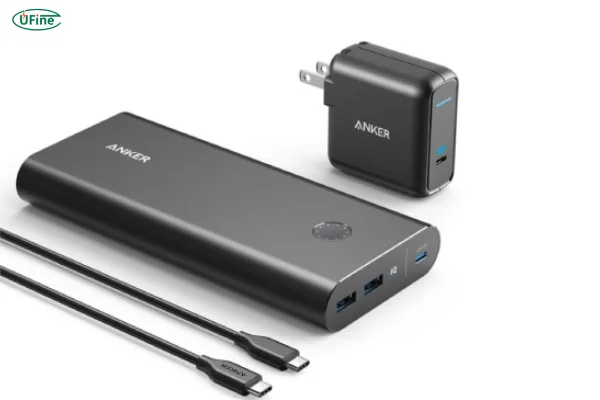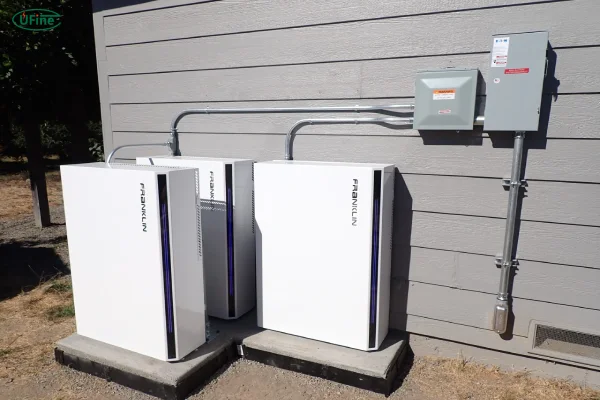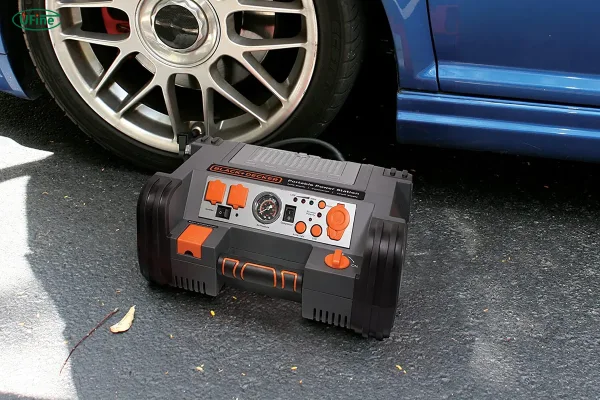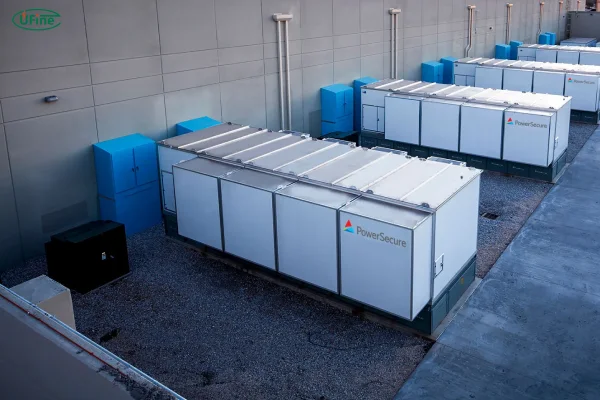
- Part 1. What is a backup battery?
- Part 2. Backup battery types
- Part 3. Backup battery applications
- Part 4. Backup battery key parameters
- Part 5. UPS vs battery backup: what is the difference?
- Part 6. How long will a battery backup last?
- Part 7. Top 5 backup battery brands
- Part 8. How much is a backup battery?
- Part 9. Conclusion
- Part 10. FAQs
In today’s world, we rely on electricity more than ever. But power outages can happen anytime. That’s where a backup battery comes in. It keeps your devices running when the power goes out. Whether you’re protecting your home, office, or electronic devices, a backup battery can be a true lifesaver.
In this article, we’ll explain what a backup battery is, the different types, their applications, key features, how long they last, top brands, and how much they cost. We’ll also answer some common questions people ask.
Let’s dive in!
Part 1. What is a backup battery?
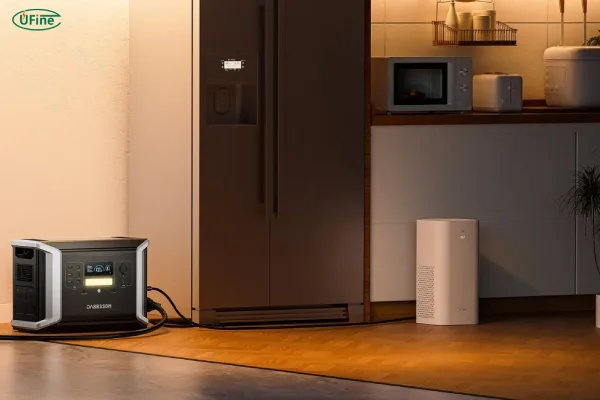
A backup battery is a power storage device. It provides electricity when your main power source fails. Think of it like a safety net. When the lights go out, your backup battery kicks in automatically (or manually, depending on the system).
Backup batteries store energy in advance. This energy is then used during emergencies, blackouts, or when you’re off the grid.
They come in different sizes and power levels—from small battery packs for phones to large home battery systems that run refrigerators and medical devices.
Part 2. Backup battery types
There are several kinds of backup batteries, each designed for specific needs:
A. Portable Battery Packs
- Small and lightweight
- Used for charging smartphones, tablets, and laptops
- Rechargeable via wall outlet or solar power
B. Uninterruptible Power Supplies (UPS)
- Designed for computers, servers, and data centers
- Instantly switches to battery power during outages
- Prevents data loss and hardware damage
C. Home Backup Batteries
- Connect to solar panels or grid power
- Power home appliances during outages
- Often used with systems like Tesla Powerwall
D. Car Jump Starters / Power Stations
- Rechargeable lithium batteries
- Jump-start dead car batteries
- Many models include USB ports for device charging
E. Industrial or Commercial Backup Systems
- High-capacity batteries
- Used in hospitals, factories, and telecommunication centers
- Ensure 24/7 uptime for critical equipment
Part 3. Backup battery applications
Where and why do people use backup batteries?
Home Use
- Power lights, Wi-Fi routers, and refrigerators during outages
- Protect medical equipment like CPAP machines
- Work-from-home setup reliability
Office & Business
- Keep servers, modems, and security systems running
- Avoid downtime and data loss
Outdoor Activities
- Camping, hiking, or RV travel
- Charge phones, lanterns, and GPS devices
Medical Facilities
- Backup batteries are critical for life-support machines
- Help maintain reliable operation in emergencies
Data Centers
- Essential for uninterrupted IT operations
- Protects sensitive digital data
Part 4. Backup battery key parameters
When buying a backup battery, check these important specs:
A. Capacity (Wh or mAh)
- How much energy it can store
- Bigger is better for longer backup time
Enerything You Should Know About Li-ion Battery Capacity
B. Output Power (Watts)
- Maximum devices it can run at once
- Make sure it matches your needs
C. Voltage
- Must match the devices you’re powering
- Common types: 5V (USB), 12V, 120V
D. Recharge Time
- How long it takes to fully recharge
- Fast charging is a plus
E. Lifespan (Charge Cycles)
- Most lithium batteries last 500–2000 cycles
- More cycles = longer life
Battery Charge Cycles: Maximize Lifespan & Performance
F. Weight and Portability
- Important for travel or mobile use
- Stationary models focus more on capacity
Part 5. UPS vs battery backup: what is the difference?
Many people confuse UPS with battery backup. Here’s the difference:
| Feature | UPS | Battery Backup |
|---|---|---|
| Primary Use | Computers & Servers | Home, Office, Medical |
| Response Time | Instant | May have a delay |
| Built-in Inverter | Yes | Optional |
| Portability | Usually not | Can be portable |
| Cost | Often higher | Varies widely |
In short:
- UPS gives instant power to prevent shutdown.
- Battery backup provides longer backup time for many devices.
Part 6. How long will a battery backup last?
It depends on the battery capacity and the power load of your devices.
For example:
- A 1000Wh battery can power a 100W device for 10 hours.
- A small phone power bank (10,000mAh) may recharge a smartphone 2–3 times.
Here are some common examples:
| Device | Backup Time (1000Wh Battery) |
|---|---|
| LED Light (10W) | 100 hours |
| Wi-Fi Router (15W) | 66 hours |
| Laptop (60W) | 16 hours |
| Refrigerator (150W) | 6–7 hours |
| TV (100W) | 10 hours |
To estimate your own needs:
Backup Time (hours) = Battery Capacity (Wh) ÷ Device Load (W)
Part 7. Top 5 backup battery brands
Here are 5 trusted backup battery brands known for performance and reliability:
1. Anker
- Popular for portable power stations and phone chargers
- Reliable and affordable
2. Jackery
- Well-known in the solar generator space
- Ideal for camping and home use
3. EcoFlow
- High-capacity battery systems
- Fast charging and expandable options
4. Bluetti
- Offers large capacity for home and RV backup
- Solar panel integration
5. Tesla (Powerwall)
- Premium home energy storage solution
- Works with solar for long-term backup
Part 8. How much is a backup battery?
Prices vary a lot depending on size and features:
| Type | Price Range |
|---|---|
| Small Power Banks | $20 – $100 |
| Mid-size UPS | $100 – $300 |
| Portable Power Stations | $300 – $1,000 |
| Home Battery Systems | $5,000 – $15,000 |
Pro tip:
Look for features like solar charging, multiple outputs, and warranty when comparing prices.
Part 9. Conclusion
A backup battery is one of the smartest investments you can make. Whether it’s for work, travel, emergencies, or peace of mind, having backup power can save you from major inconvenience—or even danger.
From portable packs to full-home battery systems, there’s something for every need and budget. Just remember to check the capacity, output, and features before you buy. Stay charged, stay connected!
Part 10. FAQs
Q1. Can I use a backup battery with solar panels?
Yes, many backup batteries support solar charging. Just make sure the panel’s output matches the battery specs.
Q2. What size battery backup do I need for my house?
It depends on how many devices you want to run and for how long. A whole-house system like Tesla Powerwall is ideal for full backup.
Q3. Do battery backups need maintenance?
Minimal maintenance is needed. Keep them clean, fully charged, and store in a cool, dry place.
Q4. How long do backup batteries last?
Most lithium-ion batteries last 5–10 years or 500–2000 charge cycles, depending on quality and usage.
Q5. Are backup batteries safe?
Yes, especially those with built-in protection circuits. Avoid overcharging or using damaged batteries.
Related Tags:
More Articles

Big Square Battery Safety Standards You Must Know
Learn key safety standards for big square batteries to avoid fire risks, shipping delays, and compliance issues in EV, industrial, and energy storage projects.
Big Square Battery Applications in Solar & Industrial Equipment
Big square batteries deliver high capacity, stable output, and long life for solar, industrial, and backup power. Explore key uses and advantages.
Big Square Battery vs Cylindrical Battery: Complete 2025 Guide for EVs, ESS & Industrial Devices
Choosing the right battery is key for designers and engineers. Compare big square vs cylindrical batteries to find the best fit for your application.
How to Choose the Right Big Square Battery for Your Device?
If you’re choosing a big square battery for EVs, solar, or mobility devices, this guide helps you pick the right solution for real-world needs.
Big Square Battery Complete Guide: Types, Uses & Buying Tips
If you are choosing a big square lithium battery for EVs, solar, RVs, or AGVs, this guide helps you select the right NMC, LFP, or LTO solution with examples.

